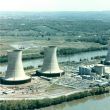Summits end; nonproliferation challenges don’t
By Michael H. Fuchs, May 12, 2016
In late March, just as representatives to the final Nuclear Security Summit were converging on Washington, Donald Trump was revealing to The New York Times his cavalier and irresponsible attitudes toward nuclear proliferation. Just last week, Trump became the presumptive Republican nominee for president. So perhaps now more than ever, it's important to impress on both publics and governments the indispensability of concrete nonproliferation action.
My roundtable colleagues Hubert Foy and Nilsu Goren don't agree with me that the Nuclear Security Summits should continue at the head-of-state level, but we all agree that the summits, as action-forcing events, have focused attention on key nonproliferation issues. Whether the summits continue or not, focusing attention on nonproliferation—and disarmament—will remain a perennial challenge.
When a new US administration takes office next year, it must grapple—no matter the identity of the president—with a set of nuclear policy issues whose implications will reverberate far into the future. They include:
- Determining whether a viable path exists toward negotiating further reductions in US and Russian nuclear arsenals. Relations between Moscow and Washington are at a post–Cold War low, so chances for serious follow-up negotiations to the New START agreement seem poor. But if there’s one area where Russia and the United States should try to move forward despite their tense relationship, this is it.
- Settling on an approach toward modernization of US nuclear forces. As my colleagues Larry Korb and Adam Mount have discussed, Washington faces decisions today that will determine the composition of US nuclear forces for decades. If the United States is truly committed to reducing stockpiles while maintaining a credible deterrent, tough choices must be made in the coming years—such as whether to reduce the size of the intercontinental ballistic missile force (which, indeed, seems wise).
- Sustaining the historic Iran deal. The Joint Comprehensive Plan of Action proves that, with diplomacy, it's possible to stop a country from acquiring nuclear weapons. The deal's success and continuing credibility will be key to sustaining the nonproliferation regime and encouraging countries to live up to their nonproliferation obligations. Yet criticism of the deal abounds, as the newspapers attest almost every day, so it is critical to ensure that the deal succeeds and all sides follow through on it.
- Finally, contending with North Korea. As Pyongyang's nuclear capabilities expand, especially where miniaturization and missiles are concerned, significant challenges face US policy makers striving to ensure regional stability. The world is taking a stricter approach to North Korea, with China in March endorsing a tough UN Security Council resolution aimed at Pyongyang. Yet the North still seems intent on proceeding down the nuclear path.
None of these challenges is new. Still, facing them requires sustained, high-level commitment and attention—much like the commitment and attention brought to bear during the Nuclear Security Summits.
The White House has announced that President Obama will visit Hiroshima during an upcoming trip to Japan. Perhaps the president will take that opportunity to outline a practical vision for tackling the nuclear challenges ahead—a sort of Prague speech 2.0 that presents a more detailed road map for achieving his nuclear vision. The decisions that lie ahead are tough, and addressing them will require bold but pragmatic thinking.
Topics: Nuclear Energy, Nuclear Weapons
Share: [addthis tool="addthis_inline_share_toolbox"]














